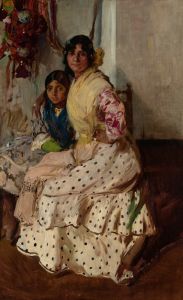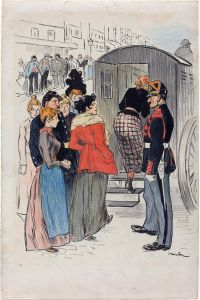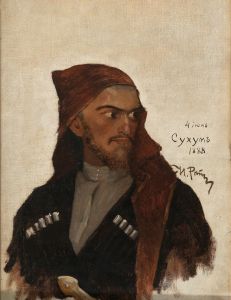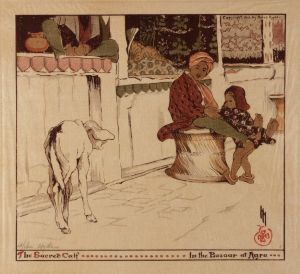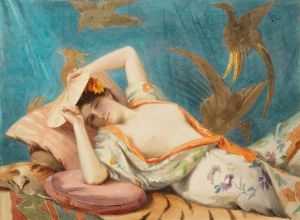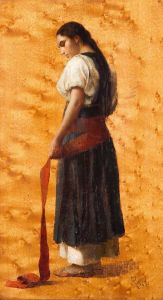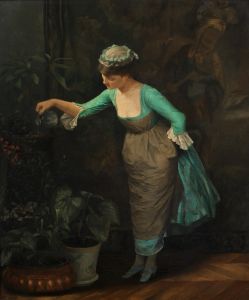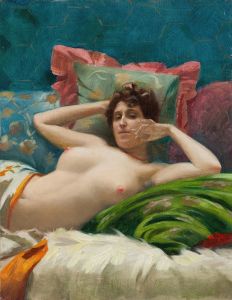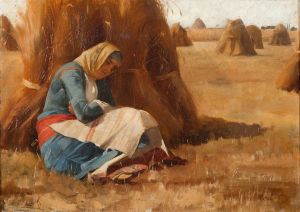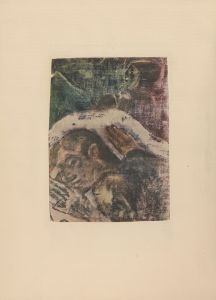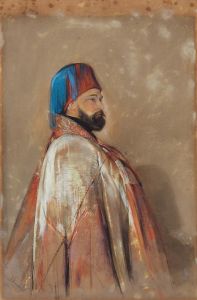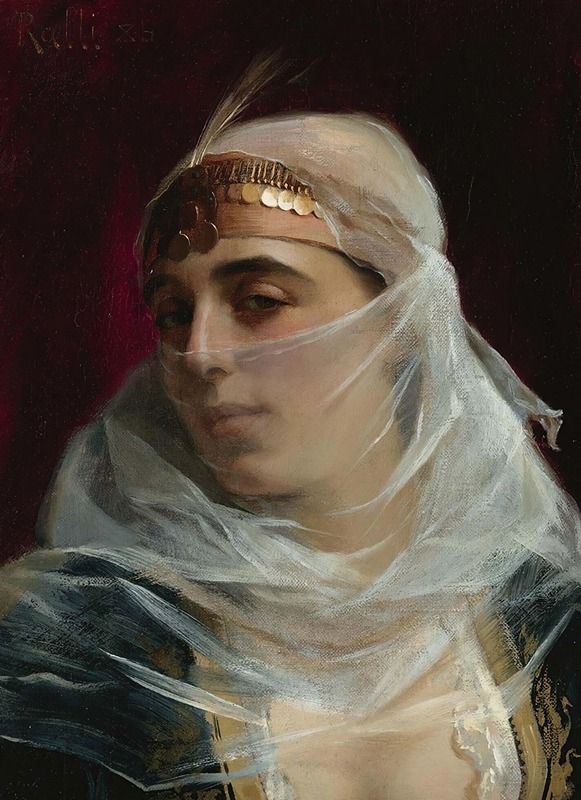
Turkish Woman
A hand-painted replica of Theodoros Ralli’s masterpiece Turkish Woman, meticulously crafted by professional artists to capture the true essence of the original. Each piece is created with museum-quality canvas and rare mineral pigments, carefully painted by experienced artists with delicate brushstrokes and rich, layered colors to perfectly recreate the texture of the original artwork. Unlike machine-printed reproductions, this hand-painted version brings the painting to life, infused with the artist’s emotions and skill in every stroke. Whether for personal collection or home decoration, it instantly elevates the artistic atmosphere of any space.
The painting "Turkish Woman" is a work by the Greek artist Theodoros Ralli, who was known for his Orientalist style and depictions of scenes from the Eastern Mediterranean and the Middle East. Ralli was born in 1852 in Constantinople, now Istanbul, and spent much of his career traveling between Greece, Turkey, and France. He studied under the renowned French painter Jean-Léon Gérôme, which significantly influenced his artistic development and inclination towards Orientalism.
Ralli's "Turkish Woman" is a representative piece of his oeuvre, capturing the essence of his fascination with the cultures and people of the regions he visited. The painting typically features a woman dressed in traditional Turkish attire, which may include garments such as a kaftan or a veil, reflecting the fashion and cultural norms of the time. Ralli's attention to detail and his ability to capture the textures and colors of fabrics are evident in this work, showcasing his technical skill and dedication to authenticity.
Theodoros Ralli's work is characterized by its vivid portrayal of everyday life and intimate scenes, often focusing on women in domestic settings. His paintings frequently explore themes of beauty, tradition, and the exotic, as perceived through the lens of a Western artist in the 19th century. "Turkish Woman" fits within this context, offering viewers a glimpse into the life and attire of women in the Ottoman Empire during that period.
Ralli's paintings, including "Turkish Woman," are part of the broader Orientalist movement, which was popular among European artists in the 19th and early 20th centuries. This movement was marked by a fascination with the cultures of North Africa, the Middle East, and Asia, often romanticizing and idealizing these regions. While Orientalism has been critiqued for its stereotypical and sometimes inaccurate portrayals, it remains an important area of study for understanding the cultural exchanges and perceptions of the time.
Theodoros Ralli exhibited his works in various prestigious venues, including the Paris Salon, where he gained recognition for his skillful compositions and evocative subject matter. His paintings were well-received by audiences and collectors, contributing to his reputation as a prominent Orientalist painter.
Today, Ralli's works, including "Turkish Woman," are appreciated for their artistic merit and historical significance. They offer insights into the cultural interactions between Europe and the Ottoman Empire during the 19th century and serve as valuable records of the period's artistic trends and societal interests. Ralli's legacy continues to be celebrated in art museums and collections around the world, where his paintings are studied and admired for their beauty and historical context.





